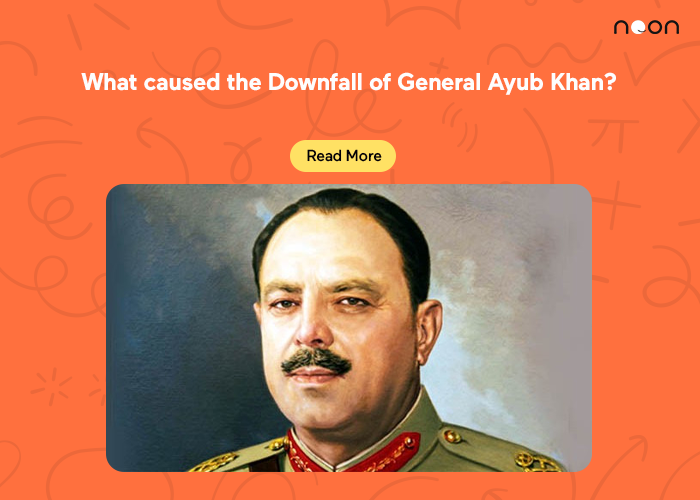General Ayub Khan was one of the first Pakistani leaders, he ruled for over a decade, from 1958 until his downfall in 1969. He was a popular and respected leader, but his time in power was not without its controversies. What ultimately led to his downfall? In this blog post, we will explore the various factors that contributed to General Ayub Khan’s eventual demise. From economic woes to political unrest, there were many forces at play in his downfall. Read on to learn more.
The Background of General Ayub Khan
Born in 1907 in the town of Rehana in the then North-West Frontier Province, Ayub Khan was raised in a conservative Pashtun family. He was educated at Aligarh Muslim University and later the Royal Military Academy Sandhurst. Upon graduating from Sandhurst, he was commissioned into the British Indian Army. He saw action during World War II as a Tank Commander in the Middle East and North Africa.
After the war, he transferred to the Pakistan Army where he rose through the ranks to become its Commander-in-Chief. He ousted civilian Prime Minister Liaquat Ali Khan in a bloodless coup in 1958 and assumed power as Pakistan’s first military dictator.
Under his rule, Pakistan made rapid progress on economic and social fronts. However, his heavy-handedness and repression of dissent ultimately led to his downfall. A series of protests and demonstrations against his rule culminated in his resignation in 1969. He died in 1974 after suffering a heart attack.
The Economic Condition during his Rule
During his rule, General Ayub Khan’s economic policies were characterized by a strong reliance on foreign aid and loans, which led to an increase in the country’s debt burden. In addition, his government was accused of corruption and nepotism, which contributed to public discontent. Furthermore, his decision to nationalize some industries was widely criticized, as it led to a decline in production and jobs.
The Riots of 1968
The Riots of 1968 were a series of protests and civil unrest that broke out in several cities across Pakistan. The riots began in Karachi on February 5, 1968, after the Pakistani government announced plans to crack down on student protesters. The unrest quickly spread to Lahore, Peshawar, and other cities.
The Riots of 1968 were sparked by a range of factors, including economic inequality, government corruption, and the unpopularity of the Pakistani military regime. General Ayub Khan was widely seen as a dictator who had amassed a great deal of power and wealth while ordinary Pakistanis struggled to make ends meet. He was the one who imposed the first Martial Law of Pakistan. The crackdown on student protesters was the last straw for many people, and the Riots of 1968 marked the beginning of the end for General Ayub Khan’s regime.
The End of his Tenure
The end of General Ayub Khan’s tenure as President of Pakistan was marked by a number of factors, including increasing public unrest, economic difficulties, and mounting international pressure.
In the face of growing domestic and international criticism, General Ayub Khan announced his resignation in March 1969. This marked the end of his 11-year rule and ushered in a new era of political instability in Pakistan.
Conclusion
The Downfall of General Ayub Khan was caused by his economic policies, which led to high inflation and unemployment, as well as his military policies, which led to the loss of East Pakistan. His failure to deal with these issues effectively ultimately led to his downfall. He was the one who imposed martial law in Pakistan.
The Noon app is the perfect way to learn about other subjects! With over 10,000 lectures available, you can easily learn from teachers across the globe. The Noon app is free to download and use, so what are you waiting for? Get started today and learn from anywhere around the world!
